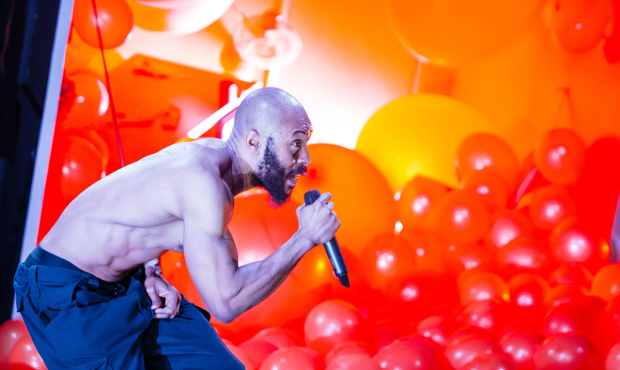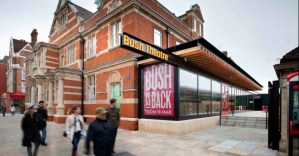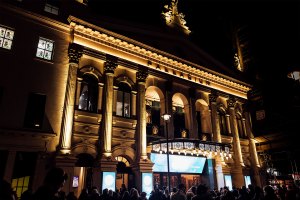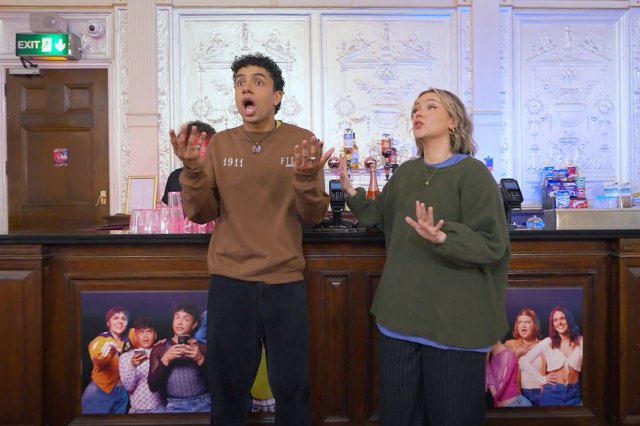
© Helen Murray
Black lies matter, says Arinzé Kene midway through Misty. Again: Black lies matter. For two hours of twisty, tight-knit performance poetry, the actor-writer tears himself in two over a very particular bout of writer’s block. It cuts to the heart of a pressing cultural debate.
Kene’s story starts on a night-bus: a young black man gets himself into a fight. Or should I say: another young black man gets into a fight. It’s a familiar tale, told with an urban pulse, only Kene almost immediately interrupts his own fiction. A voicemail kicks in, as on grime albums, and two of his friends, new parents and young professionals, berate him for creating "a modern minstrel show" – worse, "a n***** story." As they see it, he’s sold a version of blackness to appeal to white audiences: an inner-city cliché for cultural consumption.
Black lies matter. Misty finds Kene wrestling with what it means to be a black artist – specifically, with the burden of cultural representation. In a series of spoken word pieces set to a pulsing drum-and-synth score by Shiloh Coke and Adrian McLeod, Kene articulates the frustration that his stories can’t just be stories. Instead, they stand for and shape the way blackness is seen. He finds himself caught between telling the truth and selling a lie. Friends and family push him one way; white producers and agents in another. They’re all clichés of their own.
It’s as fiercely thought as it is elegantly structured, split down the centre between story and storyteller. Kene pops on a beanie to play his urban protagonist, then whips it off in frustration when that story comes unstuck. He toys with the fictional status of each: a dictaphone recording suggests there’s truth in his tale, yet as he fakes his own live performance with video trickery, Kene’s clearly aware of playing himself.
It’s really a show about crippling self-consciousness – an identity crisis intruding on art or else vice versa. When Kene burps up a bright orange balloon, the image conveys the sensation of a blockage, but it catches the way artists commodify themselves. Sometimes, he’s swallowed whole by balloons; sometimes, he’s surrounded by them.
The image gives Omar Elerian’s staging a rich visual flair, and Rajha Shakiry’s concrete design fills up with the colour of Daniel Denton’s projections – a neat encapsulation of reality and imagination. It fits with the way Kene ties an artistic argument into a socio-economic one so that artistic diversity butts against aggressive gentrification.
There is, ironically, a self-consciousness to Kene’s writing. His poetry finds its rhythm through repetition rather than rhyme, and while it conveys some sense of an artist hammering away at the same issue, his writing lacks the fluency other performance poets find. Lines rarely somersault or spring surprises, and Misty’s accomplishment resides in its structure and rigour. At times it spins itself into circles, and while its concern has an urgency, it’s also self-indulgent: an artist airing their problems rather than staging a solution. Kene’s not the first to do that, though, and he winds a really tight double-bind. Black lies matter, but black truths matter more. Misty tells one with aplomb.
Misty runs at the Bush Theatre until 21 April.


















